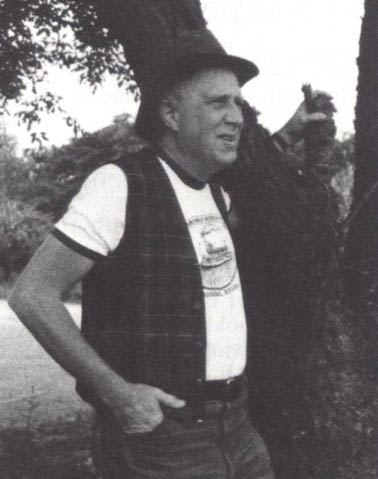

R. B. WEBER
Clearly, the landscape and the waters have affected me strongly, as they have nearly everyone who writes many poems out here. The selections here reflect some of that natural “affect.” Writing poetry in this part of Long Island almost ipso facto involves words about the sea, potato fields, bays, scrub oak thickets, ponds, pine barrens, marshes, various wild fauna, the whole nature mystique going back to Wordsworth in poetry in English. I suppose, however, that Hesiod and Virgil are the ultimate ghosts for the bucolic nature out here, although Emerson and Whitman and Frost are the more immediate American models. Anyway, I try to intensify awareness of the human roots in the natural world through my work concerned with it. And I usually celebrate the recognition of living on and in this part of the whole earth called the East End.
Meanwhile we are all beset by three dangers. The first two arise from the temptations of prettification and nostalgia. They are such easy, sentimental stances. We don’t always remember that what we humans call “Nature” doesn’t exist out there as a picturesque pictureshow for our entertainment. It is a multiform wonder, with heartless competitiveness and rapacious appetites, amid the luxurient beauties.
The third danger comes from the American cultural craziness that threatens the natural world itself, too much of which is still disappearing before our eyes, being ground away by the emerging Condo-and-Glitz Hamptons. The link between the money and social glitter out here and the debasement of the environment, through excessive development, makes me feel pessimistic about the future of the “fabulous Hamptons,” at least as a place where the natural landscape will continue to matter very much. Some of that feeling has come out in poems not used in this anthology. So I won’t go on any more about that now; perhaps next time, for another and different anthology.
Meanwhile, in a culture with a subnormal taste for poetry which demands that readers feel and think about their lives differently, with an abnormal appetite for the new, and with an extraordinary thirst for instant gratification, a surprising amount of sensitivity remains, along with a stubborn will to live thoughtfully and well. The best poems in this book will have a central place in the lives of readers with those virtues. For the poetry that matters constantly struggles to renew the language and, through that renewal, to help its readers perceive/think/feel with the nerve ends of their consciousness of what it means to be fully alive in communion with the rest of life, all of life.